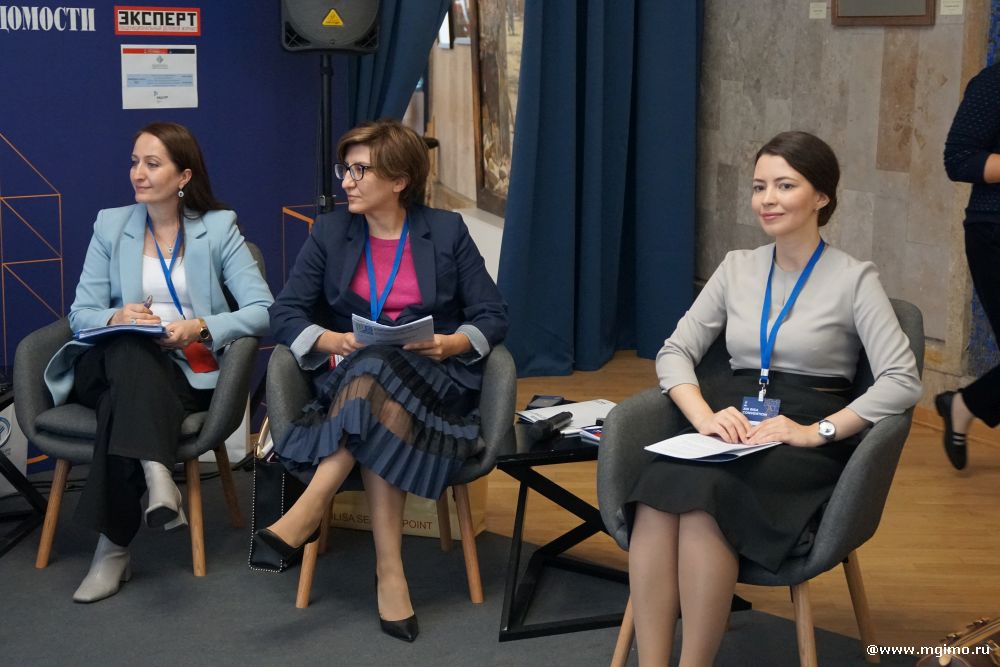On October 14, MGIMO hosted the first Russian open international conference «Sustainable Development and ESG Transformation». The conference was held under the auspices of the XIII Convention of the Russian Association for International Studies (RAMI) and brought together practitioners in sustainable development, representatives of international organizations, leading universities of the country, the business community and the non-profit sector.
Anastasia Tsvetkova, General Director of the Foundation, spoke at the section «Science and Education for Sustainable Development». In her speech, Anastasia cited the thesis that education for sustainable development is part of the fourth Sustainable Development Goal for quality education and in fact is an activator for all other sustainable development goals, Anastasia also highlighted the UNESCO framework for education for sustainable Development 2030. During her speech, Director of the Foundation noted the growing demand for specialists with a background in the field of sustainable development. Thus, every sixth large foreign company already has a separate position of a specialist in sustainable development, according to a recent report by Deloitte and the International Institute of Finance, while an escalation in demand is predicted. In the Russian context, we also see similar vacancies in various industries — from large industrial companies to fashion startups, and graduates of management programs seek to expand their knowledge in the field of sustainable development, corporate social responsibility and responsible investing before graduating from classical programs.
Among the obvious reasons for business attention to the development of departments responsible for sustainable development, Anastasia mentioned the direct dependence of the existence of companies exporting hydrocarbons and other raw materials, as well as machinery and equipment and even food from ESG transformation — companies are forced to adapt to new foreign standards, where their products are exported. The climate agenda also requires new personnel both in the business environment against the background of EU requirements to reduce greenhouse gas emissions, and for the state — the Decree of the Government of the Russian Federation No. 3183-r of December 25, 2019 On approval of the national action plan of the first stage of adaptation to climate change for the period up to 2022 was adopted.
Speaking about the competencies of specialists who need to be trained at universities, Anastasia stressed the critical importance of systemic thinking skills, which is not being given enough attention yet. Future product lifecycle analysts, brand managers, and general managers should dive into the cause-and-effect relationships of changes, into the roots of existing problems and think from the perspective of systemic changes. There are excellent foreign programs that have long offered similar courses and entire master’s programs in leadership with a focus on System Change, but in Russian programs this is still a new area of knowledge.
Finally, Anastasia shared with the panelists the results of the round table on Russia’s water strategy, which the Foundation held in cooperation with the HSE Competence Center for European and International Studies, summarizing the acute shortage of personnel, such as water economists, water management managers. Attention should be paid to the training of such specialists for sustainable development in a country that is among the top three countries with the richest water resources.
The discussion was moderated by Kapitolina Turbina, Head of the MGIMO Risk Management and Insurance Department, and Angelika Mirzoeva, Director of the MGIMO School of Business and International Competencies. Other participants in the discussion also included representatives of foreign universities, the MGIMO Center for Sustainable Development and ESG Transformation, the UNDP Regional Center for Europe and the CIS in Istanbul, and the Sistema Charitable Foundation.


